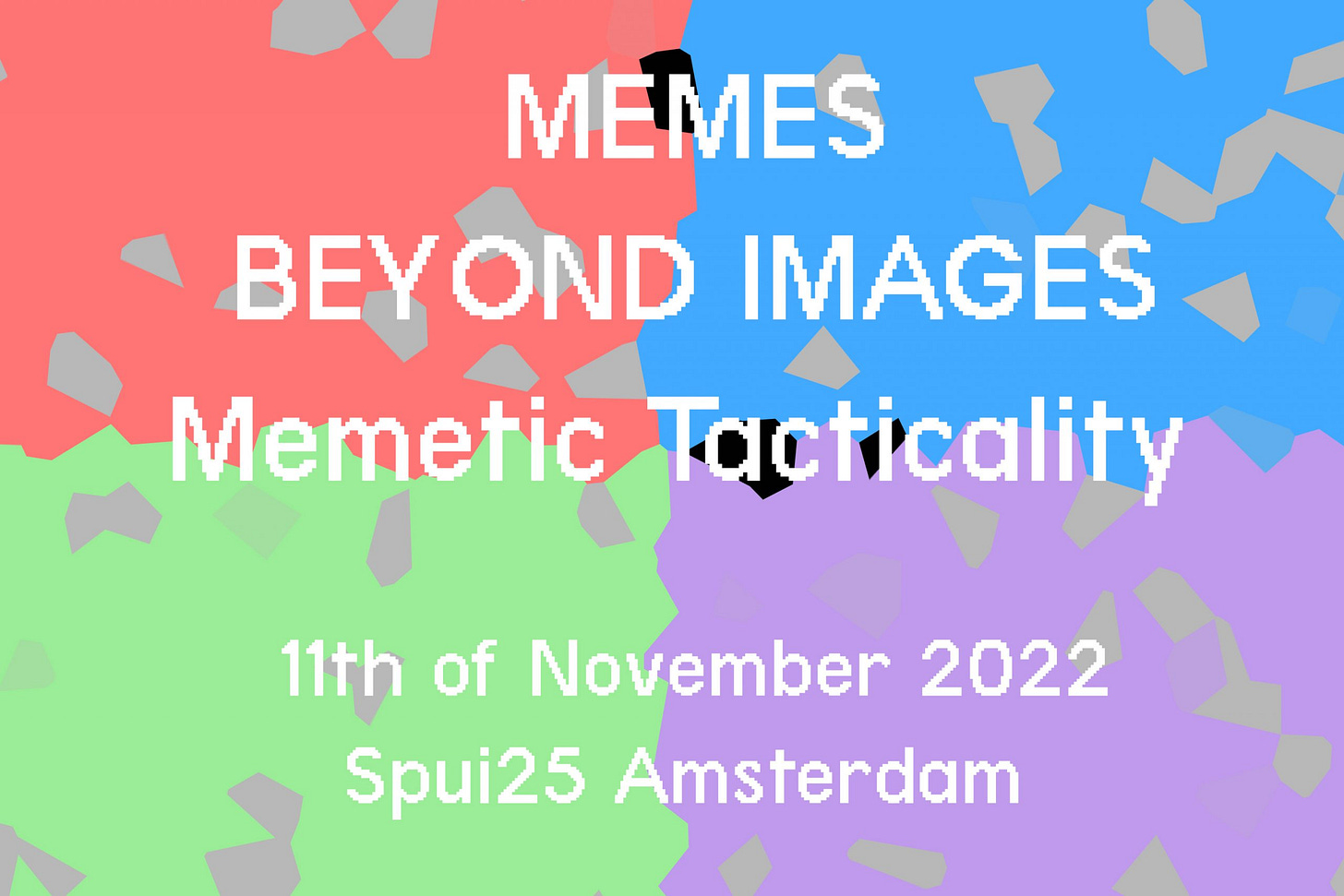Hello.
This is Understanding TikTok. My name is Marcus. TikTok's infinite scroll spotlights a growing media literacy crisis, writes Mashable. Quote: “See an article screenshot {in the back of a TikTok video} and like what the person {in front of it} is summarizing? Great. Now: Go. Read. The. Article.” Yeah. Go. Read. This week about:
🐸 Memes & more
♻️ TikTok keeps on using word filters for censorship
🎰 Everything is everything
🐸 Memes & more
You will have very likely stumbled upon the word ✍️memes ✍️over and over again when reading about TikTok: TikTok is brimming with (and repurposing) old internet memes (Mashable), TikTok Politics and the Era of Embodied Memes (Atlantic) or TikTok Audio Memes Are Everywhere (New York Times).
And you have most likely seen them: He/She is a 10, Nobody’s Gonna Know, I Am Jose Mourinho, or maybe you even remember I’m in The Ghetto from 2019. Here are some useful books, videos, databases and a bunch of links.
I have just finished reading Limor Shifman’s Memes in Digital Culture from 2013. A little gem 💎 and good starting point to learn more about the relevance of memes, get a decent definition and e.g. understand the difference between virals & memes. Shifman argues that “memes allow us to convey complex ideas within a short phrase or image” as a “fundamental building block of digital culture”.
Shifman is cited by Jing Zeng in a worthwhile keynote she held at an ECREA pre-conference workshop on “Visual Politics & Protest – Current Methodological Challenges” October 6. ECREA stands for European Communication Research and Education Association. If you are up for a methodological reflection on researching video memes on Douyin and TikTok this video is for. It mentions a bunch of papers for further investigation. If that is a bit too much for you, why not check out TikTok: Creativity and Culture in Short Video a good intro to TikTok co-authored by Zeng.


You want more? Okay. The Meme Studies Research Network is an international and interdisciplinary research network for scholars who study memes founded by the super cool Idil Galip. What a treasure trove 🪅 including the The Meme Studies Index.
You are yearning for some IRL? INC in Amsterdam invites various theorists, researchers, journalists, activists, designers, and other creatives and thinkers to critically reflect on the tacticality of memes: During a one-day conference at Spui25, we dive into meme activism & political warfare, meme design & labor, and speculative memes & imaginaries. I am especially hyped to hear more about Russian Digital Warfare Narratives (and Counter-Narratives) on TikTok: On Propaganda in Hyper-Affective and Ambiguous Spaces, by Marloes Geboers and Elena Pilipets after having done some research on WarTok (german).
Do you have more links or resources? Happy to add them. Thanks.
♻️ TikTok keeps on using word filters for censorship
Secret censorship: Tiktok has lost all trust. That was the headline of an article in Süddeutsche Zeitung – one of the largest daily newspapers back in March 2022. Journalists had found out that TikTok filters and blocks 19 words including gay, porno, queer, sex and Auschwitz (a complex of over 40 concentration and extermination camps operated by Nazi Germany in occupied Poland) from the comments. TikTok promised a “thorough review”.
Six months later TikTok is still applying word filters to block content a new german investigation has found out (Tagesschau) including some old acquaintances like gay and LGTBQ and some newbies like LSD and crack. “In the test, the video platform never once made it clear to users whether and why a comment did not appear. Instead, the app gave the impression that her comments were public.” Tagesschau writes. This is called showbanning: TikTok hasn't issued a formal explanation on shadowbanning techniques so far.
TikTok’s reaction: “While the test scenario doesn't necessarily reflect the behavior of members of our community, any unintentional false moderation is understandably very annoying.” Very annoying. Alright. I’d rather call it devastating. Until the next thing happens out there. Personally i felt somewhat disappointed (once more disillusioned, encore).
🎰 Everything is everything
At this point, we’re all pretty used to seeing Instagram copy TikTok. Now, in a new twist, TikTok is copying Instagram with a new feature called “Photo Mode”, writes Engadget. All the Social Media Giants Are Becoming the Same, Wired stated in 2020.
But in recent weeks things have gotten a bit out of control. Engadget: In the last six weeks alone: Instagram, TikTok and Snapchat have come up with their own take on French upstart BeReal (Instagram’s hasn’t formally launched yet). Twitter introduced a TikTok-style feed for full-screen videos. While YouTube Shorts, itself a TikTok clone, added TikTok-style voice overs.
May i add that TikTok’s new editing tools (Techcrunch) strikingly remind me of the YouTube Shorts User Interface. Is it? Or is it just me? And how is TikTok Now aka TikTok’s BeReal actually doing? All platforms are doomed to grow. And will finally break apart and die. It took more than hundred years for the Roman Empire to fall. We only need to stretch out and wait. There is no debate.
What else?
🍍 I found this Gawker observation on how celebs are supposed to do TikTok quite interesting. Have you got a favourite celeb on the app? I am curious to know.
🍍 Thanks to artist Gayle my kids learned the F* word and keep constantly using it. At least i can sit down now reading the New Yorker where Carrie Battan observes the rise of meta-pop.
🍍 Hurricane Ian was the deadliest hurricane to strike the state of Florida since the 1935 Labor Day hurricane. The article TikTok Just Became a Go-To Source for Real-Time Videos of Hurricane Ian might be especially relevant to my journalist colleagues.
And here is a piano version of Charli XCX’s Lipgloss. Goodbye.









